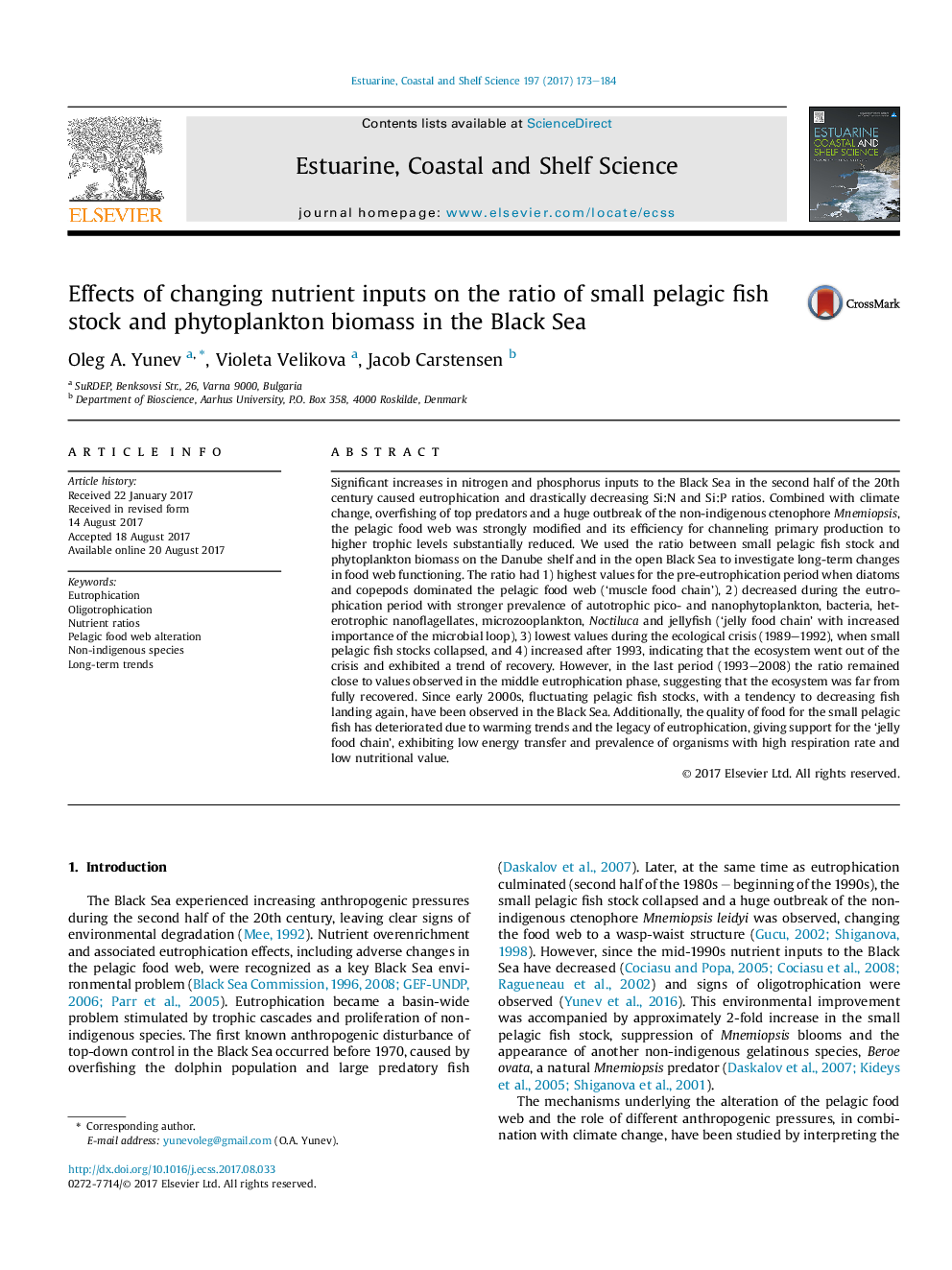| کد مقاله | کد نشریه | سال انتشار | مقاله انگلیسی | نسخه تمام متن |
|---|---|---|---|---|
| 5765068 | 1626605 | 2017 | 12 صفحه PDF | دانلود رایگان |
عنوان انگلیسی مقاله ISI
Effects of changing nutrient inputs on the ratio of small pelagic fish stock and phytoplankton biomass in the Black Sea
ترجمه فارسی عنوان
اثر تغییرات ورودی مواد مغذی نسبت به نسبت ذخایر ماهیان کوچک پلاژیک و بیوماس فیتوپلانکتون در دریای سیاه
دانلود مقاله + سفارش ترجمه
دانلود مقاله ISI انگلیسی
رایگان برای ایرانیان
کلمات کلیدی
موضوعات مرتبط
مهندسی و علوم پایه
علوم زمین و سیارات
زمین شناسی
چکیده انگلیسی
Significant increases in nitrogen and phosphorus inputs to the Black Sea in the second half of the 20th century caused eutrophication and drastically decreasing Si:N and Si:P ratios. Combined with climate change, overfishing of top predators and a huge outbreak of the non-indigenous ctenophore Mnemiopsis, the pelagic food web was strongly modified and its efficiency for channeling primary production to higher trophic levels substantially reduced. We used the ratio between small pelagic fish stock and phytoplankton biomass on the Danube shelf and in the open Black Sea to investigate long-term changes in food web functioning. The ratio had 1) highest values for the pre-eutrophication period when diatoms and copepods dominated the pelagic food web ('muscle food chain'), 2) decreased during the eutrophication period with stronger prevalence of autotrophic pico- and nanophytoplankton, bacteria, heterotrophic nanoflagellates, microzooplankton, Noctiluca and jellyfish ('jelly food chain' with increased importance of the microbial loop), 3) lowest values during the ecological crisis (1989-1992), when small pelagic fish stocks collapsed, and 4) increased after 1993, indicating that the ecosystem went out of the crisis and exhibited a trend of recovery. However, in the last period (1993-2008) the ratio remained close to values observed in the middle eutrophication phase, suggesting that the ecosystem was far from fully recovered. Since early 2000s, fluctuating pelagic fish stocks, with a tendency to decreasing fish landing again, have been observed in the Black Sea. Additionally, the quality of food for the small pelagic fish has deteriorated due to warming trends and the legacy of eutrophication, giving support for the 'jelly food chain', exhibiting low energy transfer and prevalence of organisms with high respiration rate and low nutritional value.
ناشر
Database: Elsevier - ScienceDirect (ساینس دایرکت)
Journal: Estuarine, Coastal and Shelf Science - Volume 197, 15 October 2017, Pages 173-184
Journal: Estuarine, Coastal and Shelf Science - Volume 197, 15 October 2017, Pages 173-184
نویسندگان
Oleg A. Yunev, Violeta Velikova, Jacob Carstensen,
